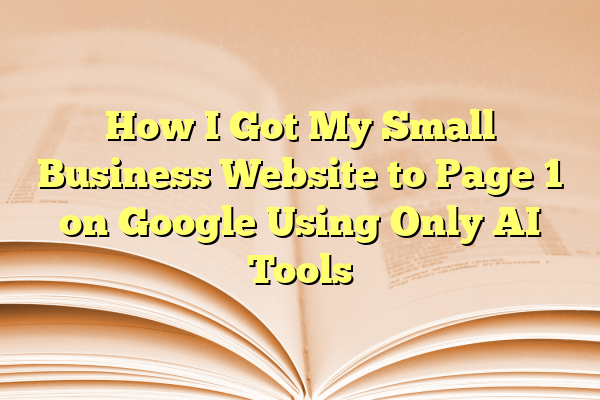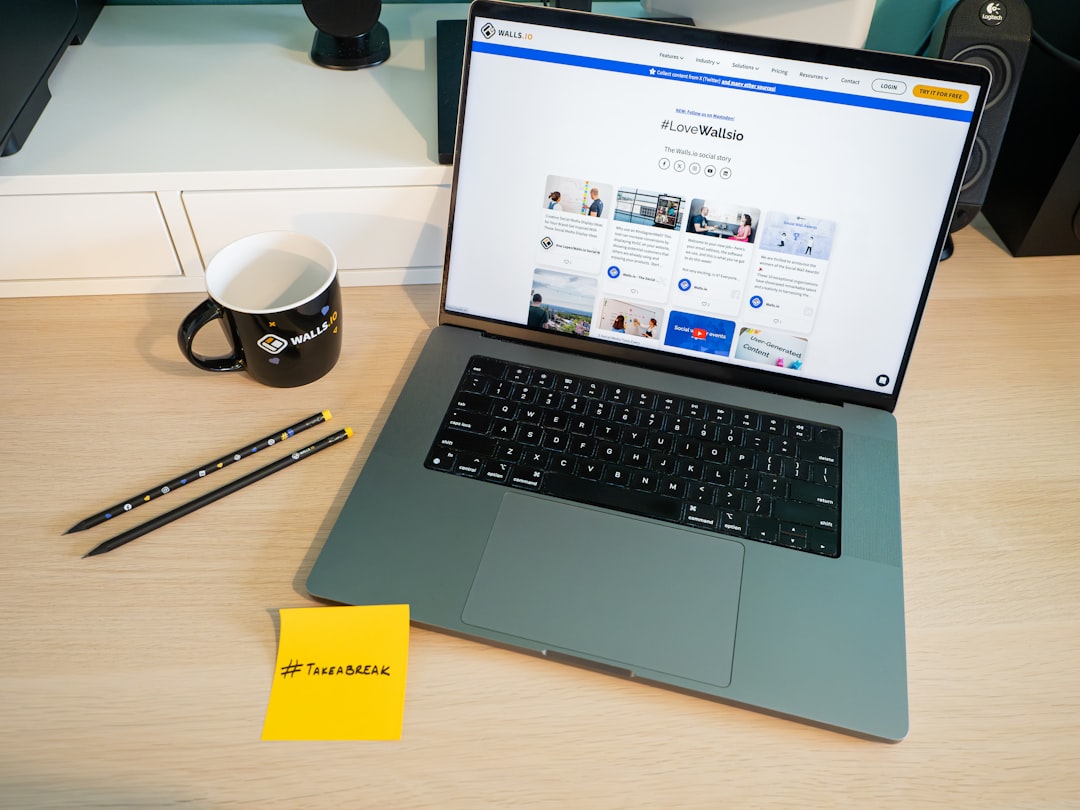
How I Got My Small Business Website to Page 1 on Google Using Only AI Tools
When I launched my small business—a boutique home renovation service—I knew that having a professional website was key. What I didn’t know at the time was just how competitive the Google search rankings could be, especially for niche services like mine. Without a marketing team or massive budget, I turned to artificial intelligence to help get my website on Page 1 of Google search results. Here’s exactly how I did it using only AI tools.
Understanding the Basics of SEO
Before diving into tools, I spent a couple of weeks educating myself on search engine optimization (SEO). I learned that factors like keyword relevance, content quality, backlinks, and website speed all play a role in how Google ranks your site. Many small business owners overlook this critical step, but knowledge was my first advantage.
Step 1: Keyword Research with AI
I started by using an AI-powered keyword research tool—NeuronWriter. Within seconds, it generated a list of relevant keywords based on my niche, location, and competition. I filtered them by search volume and difficulty, looking for low competition yet high relevance terms like “custom kitchen remodel Boston” or “affordable bathroom renovation.”
This was the first major breakthrough. Instead of shooting in the dark, I now had a map guiding my content creation process.
Step 2: Content Creation Using AI
For content, I leveraged ChatGPT and Jasper AI to generate blog posts, service descriptions, and product content. The key wasn’t just to generate text but to ensure it was truly helpful to users. I structured informative articles around the target keywords and made sure they included:
- Answers to commonly asked questions
- Step-by-step guides
- Clear calls-to-action (CTAs)
Each piece of content followed best practices like proper heading structure (H1, H2, etc.), internal linking, and image descriptors. I also asked ChatGPT to simulate a customer and generate typical questions they might have—which I answered in blog posts.

Step 3: Optimizing My Website Structure
Using AI-based website builders like Wix and Elementor’s AI features, I restructured my website for better SEO. They offered suggestions on:
- Title tags and meta descriptions
- Site speed improvements
- Mobile optimization
Even my images were optimized for SEO by having AI-generated alt texts and compressed formats to ensure fast loading times.
Step 4: Monitoring and Updating with AI Analytics
I installed AI analytics tools like Plerdy and Surfer SEO to keep track of user engagement, bounce rates, and keyword rankings. These tools not only collected data but also made recommendations for improving my content and structure.
Every few weeks, I’d go back and update old content using suggestions like adding a missing keyword, restructuring a paragraph, or increasing content depth. Google favors fresh, relevant content, and AI made updating seamless.
Step 5: Leveraging AI for Local SEO
Since my business predominantly serves the local area, local SEO was critical. I used AI to optimize my Google Business Profile, ensuring consistent NAP (Name, Address, Phone) information and encouraging reviews using email templates generated by AI.
Additionally, tools like BrightLocal helped me identify local citation opportunities and monitor how well I ranked for local search terms. I was soon appearing in the coveted Google Maps “3-Pack”.

The Results
Within four months, several of my blog posts started ranking on the first page for long-tail keywords. By month six, my homepage and two major service pages appeared on Page 1 for high-intent, local keywords. Traffic increased by over 300%, and inquiries from the website more than doubled.
Lessons Learned
- AI is a force multiplier, not a magic wand. You still need to understand your audience and offer genuine value.
- Consistency is crucial. Regular updates and monitoring make a significant difference over time.
- Focus on quality over quantity. A few well-optimized pages will outperform dozens of mediocre ones.
Final Thoughts
I didn’t spend thousands hiring an SEO agency. I didn’t have to learn how to code. Using AI tools strategically allowed me to scale my digital presence without sacrificing quality or time. If you’re a small business owner with limited resources, don’t underestimate AI—it might just be the partner you need to succeed online.
